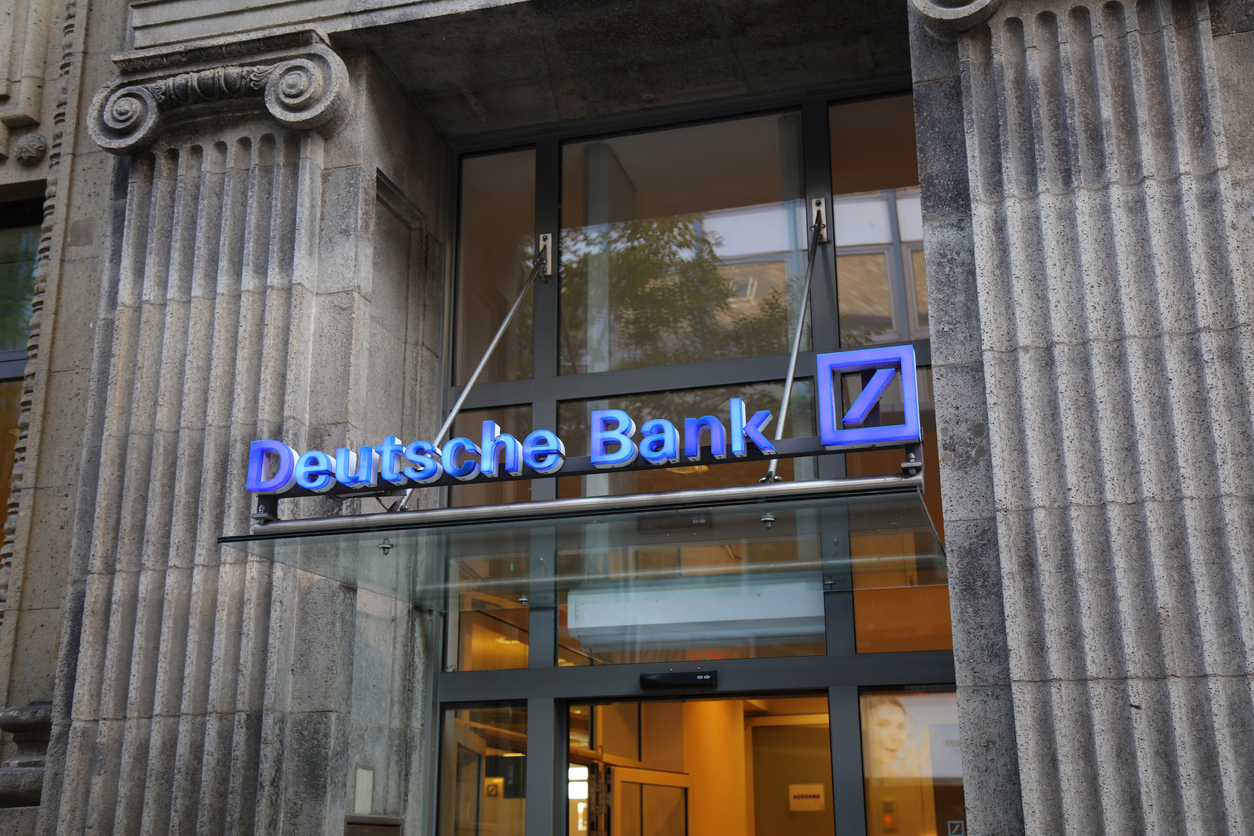Deutsche Bank Announces Strategic Layoffs and Leadership Overhaul as Part of Major Cost-Cutting Drive
In a bid to streamline operations and reach ambitious financial goals, Deutsche Bank has recently announced significant layoffs in senior management and introduced a new leadership framework for its wealth management division. This restructuring marks a critical step for the bank as it seeks to reduce its cost-to-income ratio and strengthen its position in the competitive global financial landscape. The bank’s decision to terminate over 100 senior managers across its retail and private wealth divisions is part of a broader cost-reduction strategy aimed at reshaping its financial operations and enhancing value for shareholders by 2025.
Reshaping Deutsche Bank’s Cost-to-Income Ratio for Greater Efficiency
Deutsche Bank has made it clear that a primary objective of this restructuring is to reduce its cost-to-income ratio, currently hovering at around 80%, to a more competitive 60%-65% by 2025. This ratio is a critical measure of efficiency for financial institutions, indicating how much of each dollar earned goes toward covering operational expenses. For Deutsche Bank, an 80% ratio means that the institution currently spends nearly 80 cents for every dollar of income it generates—a figure that poses challenges to sustainable growth.
Reducing the cost-to-income ratio will involve trimming personnel costs, re-evaluating internal processes, and investing in technology to automate tasks that can be handled by artificial intelligence or other digital solutions. These layoffs are expected to be the first in a series of steps that Deutsche Bank will undertake to streamline its operations, and it’s likely that more measures will follow in 2025 as the bank targets improved financial performance.
Key Leadership Shifts to Propel Wealth Management Forward
In addition to workforce reductions, Deutsche Bank has appointed Raffael Gasser as the new head of wealth management and private banking in Germany. Gasser stepped into his role on November 1, 2024, and is tasked with revitalizing Deutsche Bank’s private banking division, an area the bank has identified as key to future growth. He will be joining the Private Bank Executive Council and reporting directly to Claudio de Sanctis, a member of the Deutsche Bank Management Board responsible for the private bank.
Gasser brings substantial experience from his previous roles, including work in high-net-worth client services and private wealth management. Deutsche Bank aims to leverage his expertise to fortify its wealth management offerings in Germany, where it faces growing competition from global and regional players. His appointment suggests Deutsche Bank’s ongoing commitment to enhancing services for high-net-worth clients, focusing on tailored solutions that set it apart from traditional retail banking.
Financial Performance and Profitability Challenges
The urgency behind Deutsche Bank’s recent decisions is underscored by its mixed financial performance in recent quarters. The bank reported a pre-tax profit of €2.4 billion in the first half of 2024, down from €3.3 billion in the same period in 2023. This decline was impacted by a litigation provision of €1.3 billion related to its acquisition of Postbank, a retail banking subsidiary. The acquisition of Postbank has been both a strategic asset and a liability for Deutsche Bank, with ongoing litigation costs highlighting the challenges of absorbing a major retail bank.
Excluding the Postbank provision, Deutsche Bank’s pre-tax profit for the second quarter of 2024 was €411 million, equivalent to $445 million. However, the bank’s cost-to-income ratio remains at a high 88% for the quarter, underscoring the need for a cost-reduction plan if Deutsche Bank hopes to meet its 2025 financial objectives.
These performance figures reflect the challenges Deutsche Bank faces in balancing growth with operational efficiency. The bank’s post-tax return on tangible equity (RoTE) of 3.9% and return on equity (RoE) of 3.5% for the first half of 2024 fall short of industry benchmarks, signaling that more fundamental changes may be necessary to secure stronger returns in the coming years.
CEO Christian Sewing’s Strategic Vision for Transformation
Christian Sewing, Deutsche Bank’s CEO, has been vocal about his determination to reposition the bank as a more agile and profitable institution. He highlighted that Deutsche Bank’s underlying profitability reached its highest level since 2011 in the first half of 2024, crediting strategic initiatives to optimize cost and risk management as the foundation for this performance.
"These results highlight Deutsche Bank’s operational strength,” Sewing remarked. “In the first half of the year, our underlying profitability reached its highest level since 2011, underscoring the effectiveness of our strategic initiatives. We have generated significant momentum within our client base across all sectors, and coupled with our robust capital ratio and ongoing cost and risk management, we are well-positioned to achieve our 2025 objectives and fulfill our commitments to shareholders.”
Sewing’s emphasis on cost-cutting, technology, and a leaner workforce reflects a strategic pivot that he believes will better align Deutsche Bank with the needs of its clients while improving shareholder returns.
Deutsche Bank’s Investment in Technology and AI for Operational Efficiency
Part of Deutsche Bank’s transformation plan involves heavy investments in technology to improve efficiency. The bank has been incorporating artificial intelligence and machine learning into its operations, aiming to automate routine tasks, optimize trading algorithms, and improve client interactions within the private banking sector. Technology plays a key role in reducing the reliance on manual processes and allowing the bank to deliver services with lower overheads, which will help in lowering the cost-to-income ratio over time.
AI-based solutions in wealth management, for instance, can offer Deutsche Bank’s clients more precise financial insights while providing personalized recommendations for investment portfolios. These technological advancements will not only allow the bank to reduce costs but also to offer more value-added services to its clientele, particularly within its high-net-worth segments.
Related: Prudential Financial Appoints Jacques Chappuis as PGIM’s New CEO Amid Global Growth Ambitions
Deutsche Bank Endorses Trustpilot: A Strategic “Buy” Recommendation
Beyond its internal restructuring, Deutsche Bank has recently ventured into new analytical coverage by initiating a “buy” recommendation for Trustpilot, the consumer review platform. Deutsche Bank set a price target of 331p for Trustpilot, recognizing the company’s potential for long-term growth. Analysts have praised Trustpilot for the credibility of its open-ended review structure, its data-driven insights, and its vast proprietary database of nearly 300 million reviews.
Trustpilot achieved adjusted EBITDA break-even in fiscal year 2023, and Deutsche Bank sees strong growth potential in the company, driven by strategic changes such as updated pricing, enhanced Google Tag Manager strategies, and rigorous cost management. Deutsche Bank’s endorsement reflects confidence in Trustpilot’s market position and its capacity to achieve sustained revenue growth and margin expansion. Following the announcement, Trustpilot’s shares rose by 4.6% to 268.75p, reflecting market optimism around Deutsche Bank’s forecast.
The Future Path for Deutsche Bank: Achieving 2025 Targets
Deutsche Bank’s recent moves—layoffs, leadership changes, technological investment, and strategic financial endorsements—highlight a transformative phase for the institution as it seeks to meet ambitious goals by 2025. With a renewed focus on efficiency, strong leadership, and a strategic approach to client offerings, Deutsche Bank is positioning itself for a more profitable future. If it can successfully navigate these changes and strike a balance between cost-cutting and growth, Deutsche Bank may well emerge as a leaner, more competitive player in global finance, poised to deliver stronger returns for shareholders in an ever-evolving market landscape.











